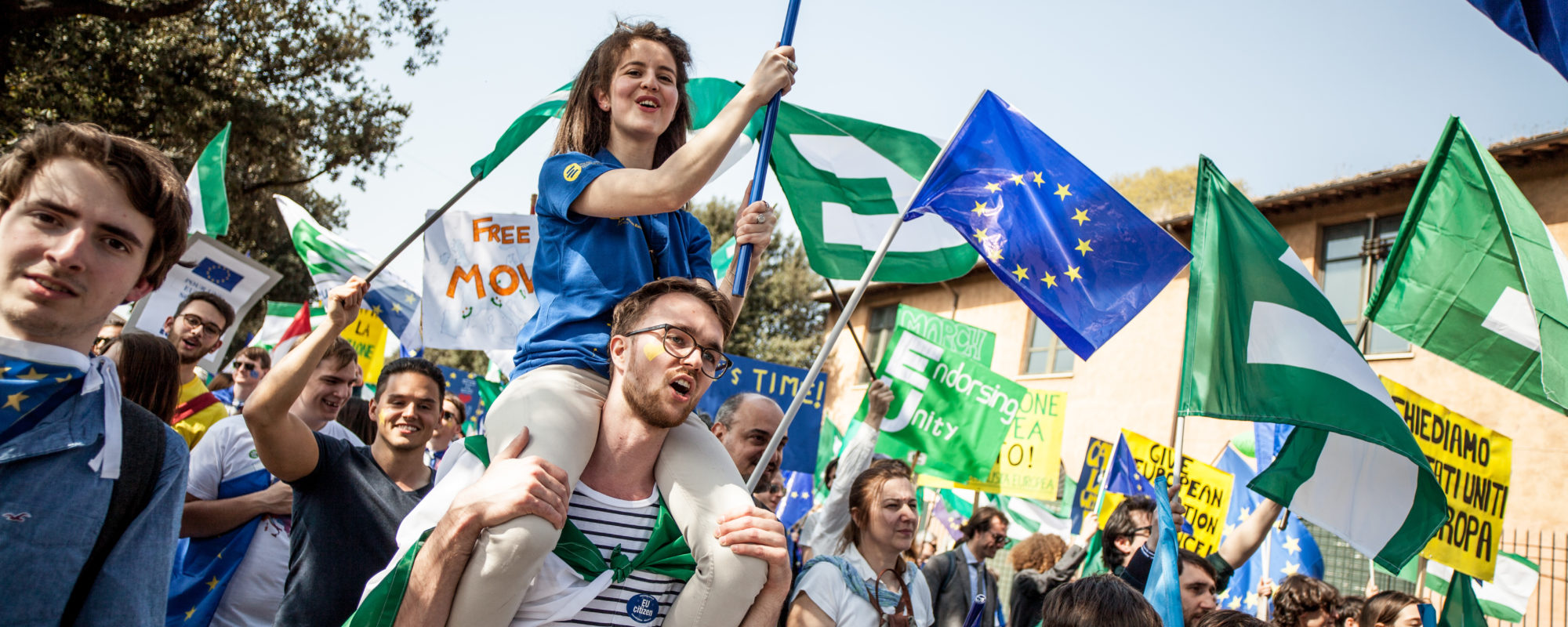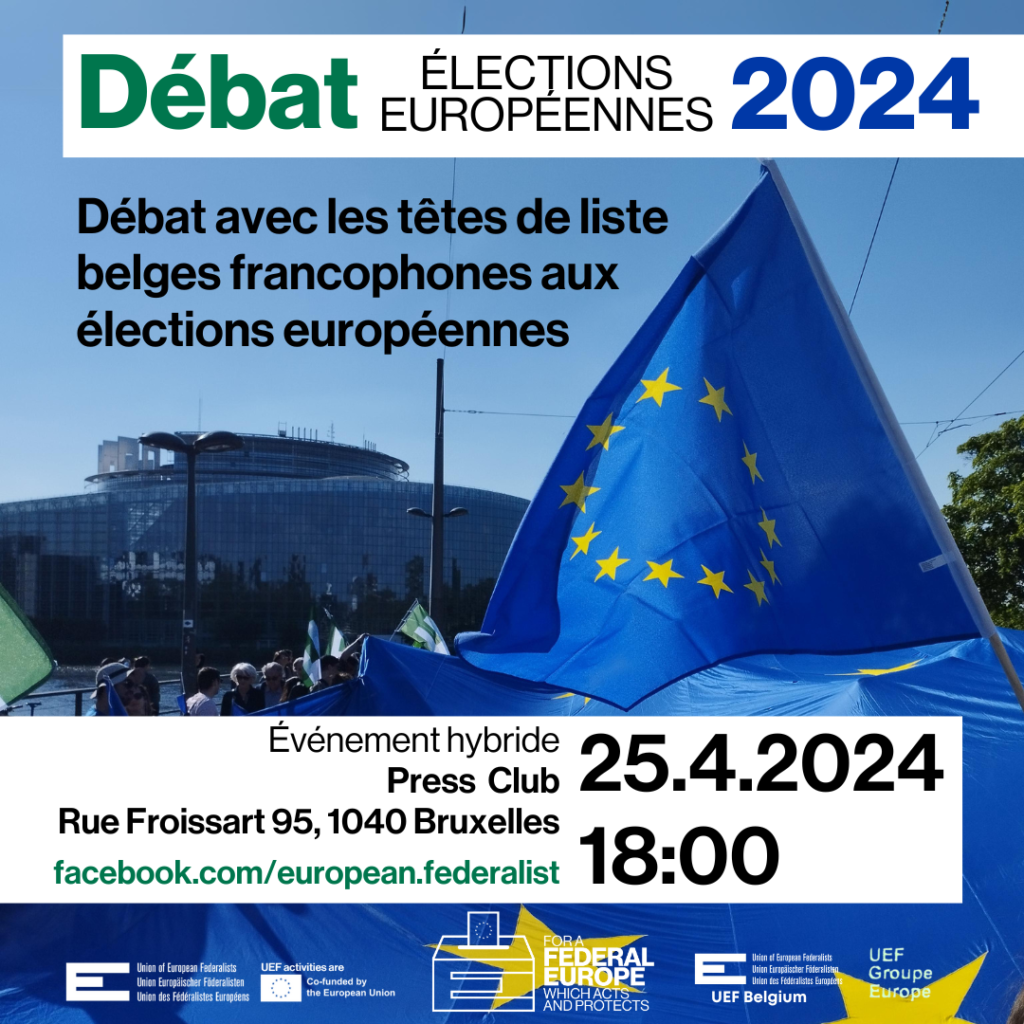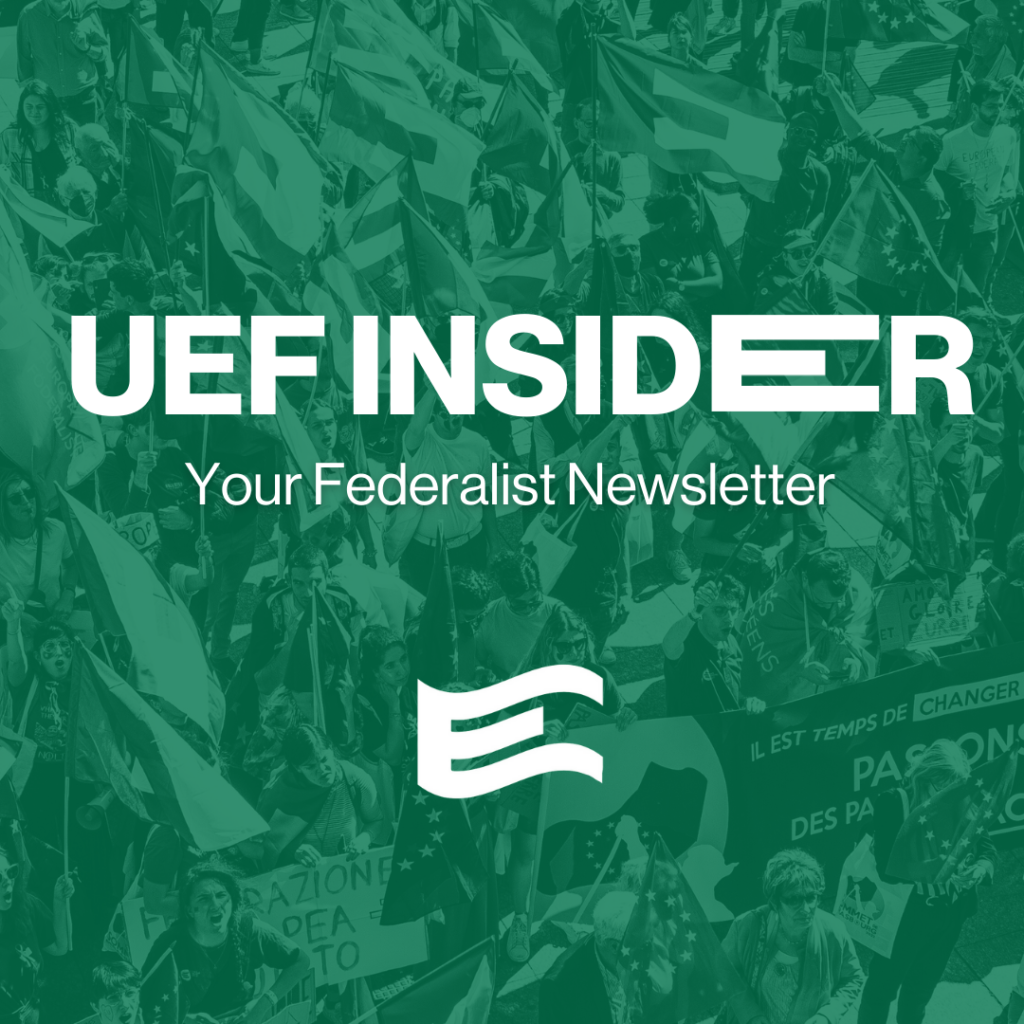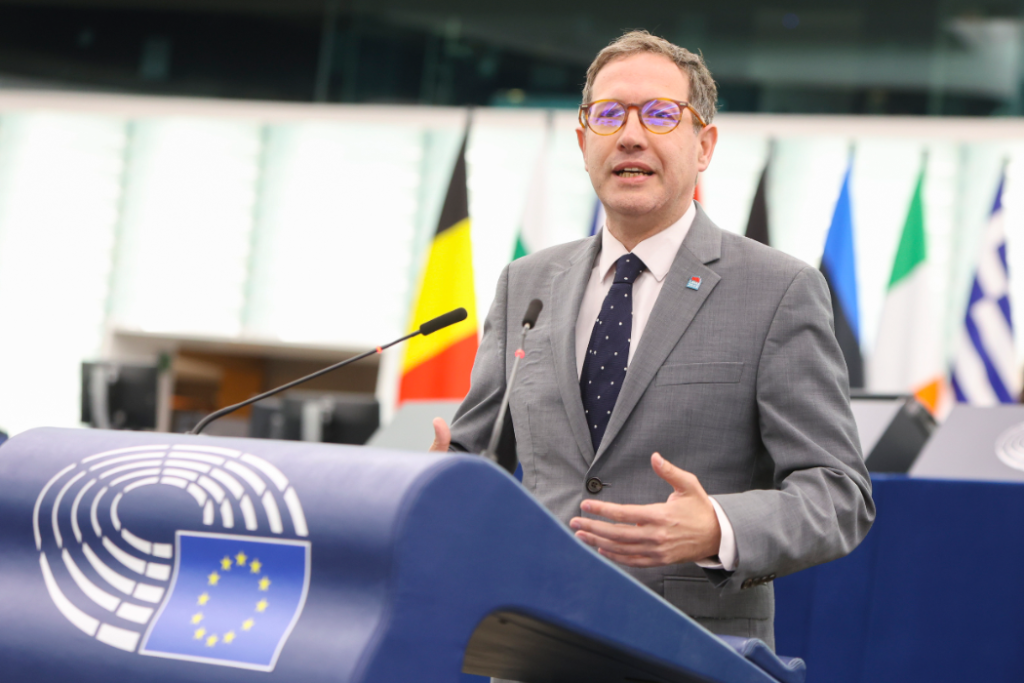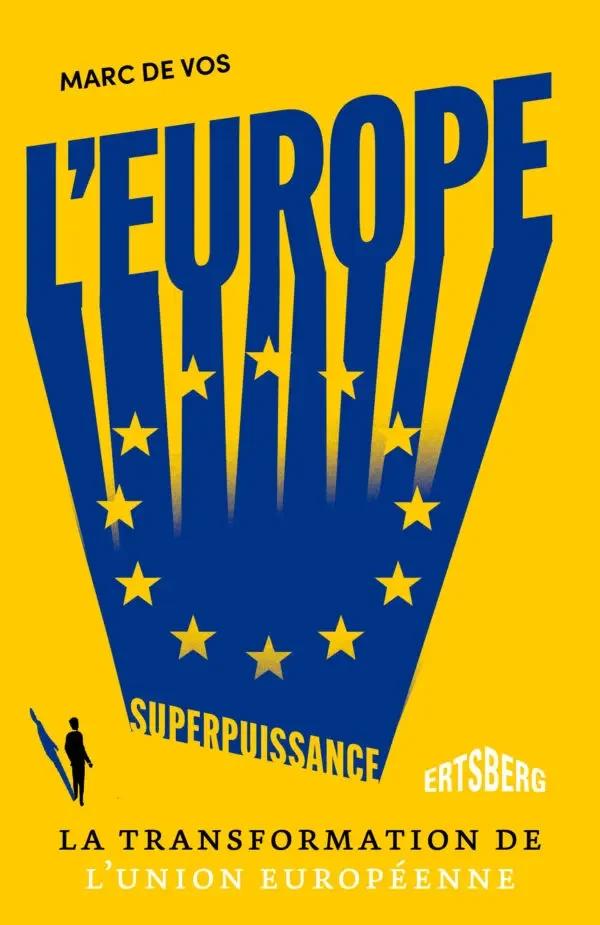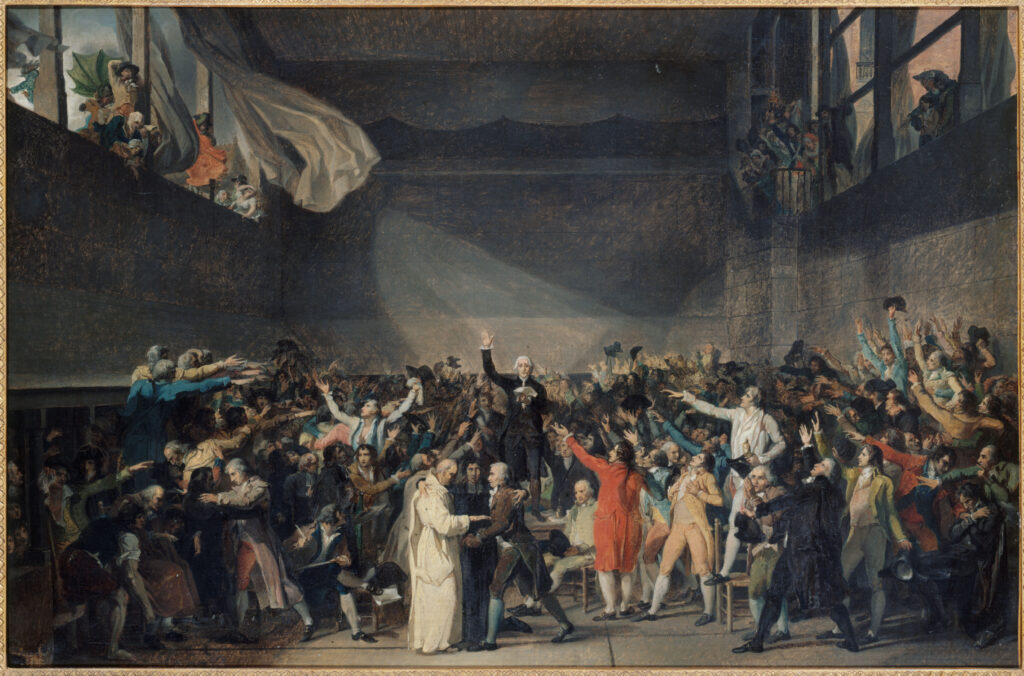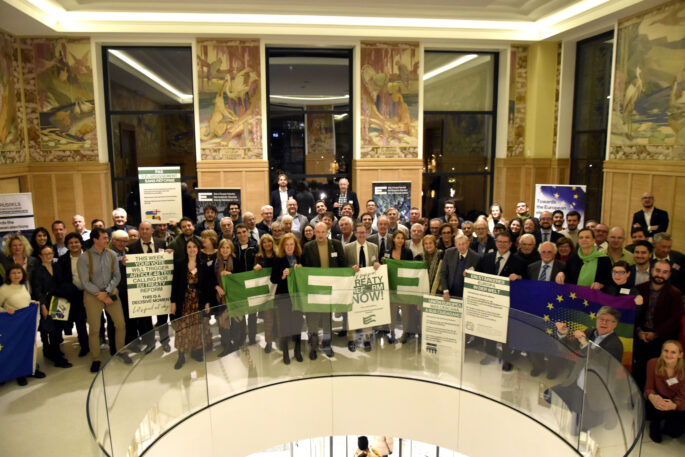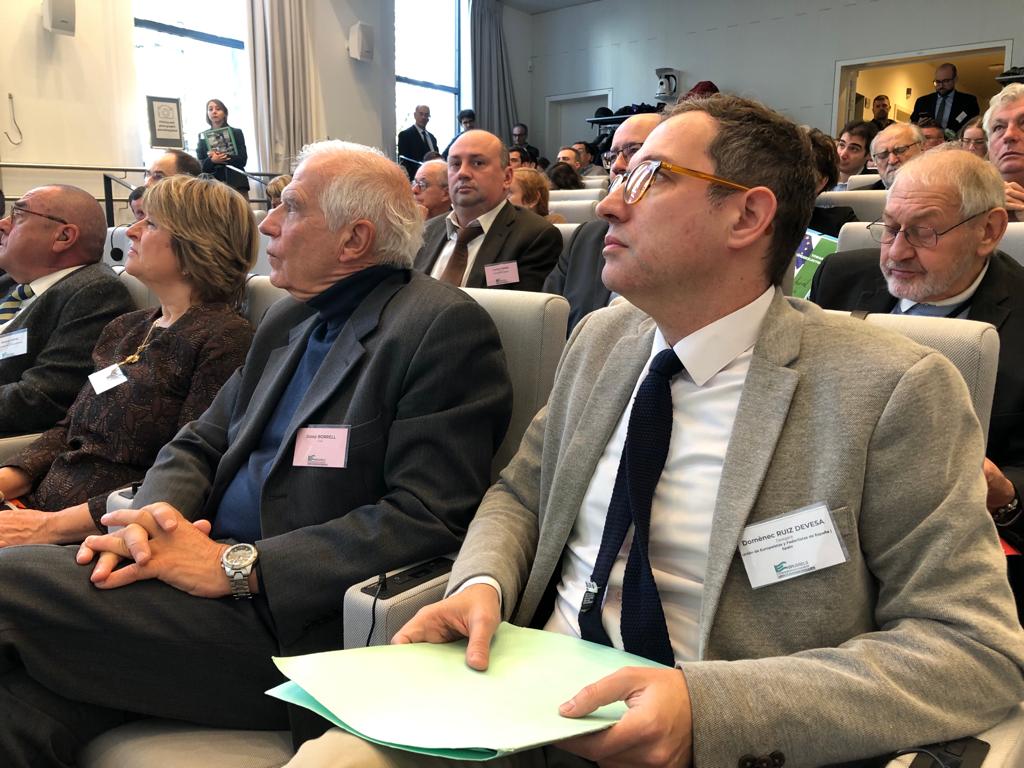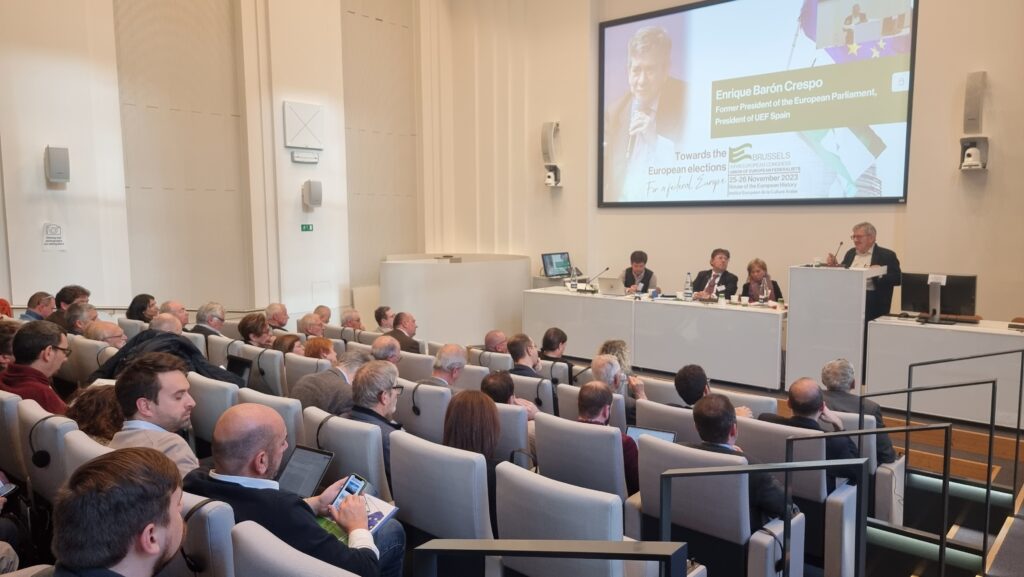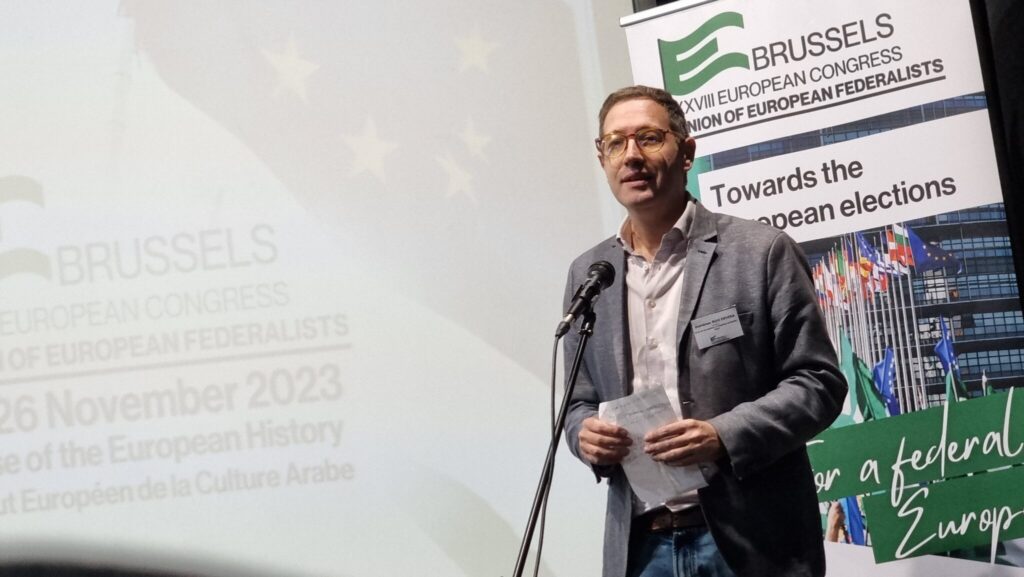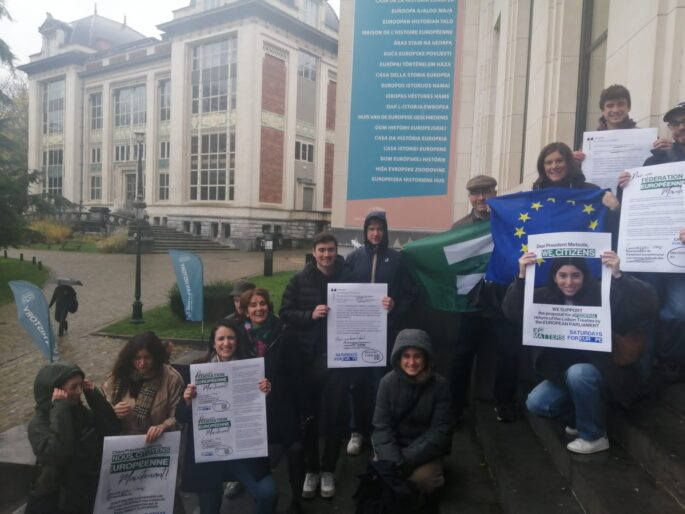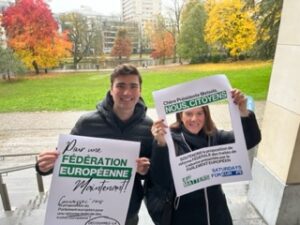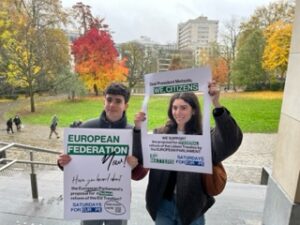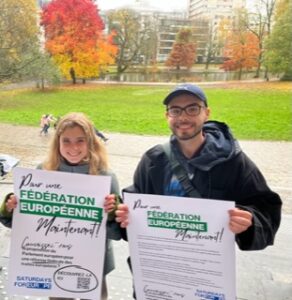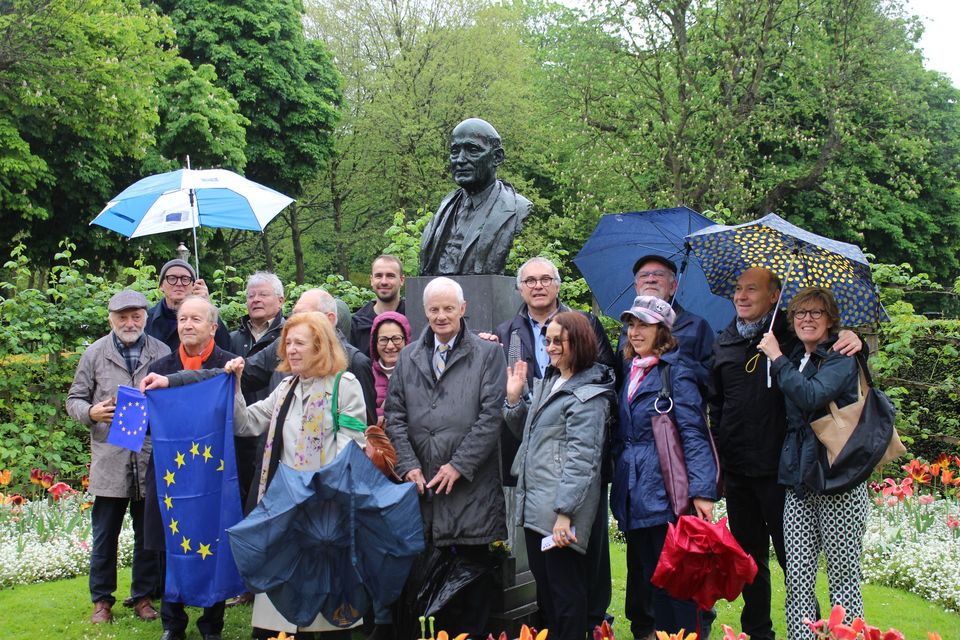
Cérémonie d’hommage à Jean Monnet, à Robert Schuman et aux autres Pères fondateurs de l’Europe Unie | Facebook
AVENIR DE L’EUROPE
Bruxelles, jeudi 9 mai 2024
74ème anniversaire de la “Déclaration Schuman”
Cérémonie d’hommage à Jean Monnet, à Robert Schuman et aux autres Pères fondateurs de l’Europe Unie
*****
Jeudi 9 mai 2024 nous célébrerons le 74ème anniversaire de la déclaration Schuman.
La cérémonie se déroulera à Bruxelles, jeudi 9 mai 2024 à 10h00, auprès du buste dédié à Robert Schuman situé à l’entrée du parc du Cinquantenaire, face à la rue de la Loi, côté Rond-Point Schuman.
Dépôt de fleurs par « Avenir de l’Europe » en présence du public et des autorités belges et européennes suivi par allocutions et hymne européen.
*****
La Journée de l’Europe marque l’anniversaire de la Déclaration de Robert Schuman, ministre des affaires étrangères français, le 9 mai 1950. Il y propose la création d’une Communauté européenne du charbon et de l’acier, dont les pays membres mettraient en commun leur production de charbon et d’acier. La CECA (membres fondateurs: France, Allemagne de l’Ouest, Italie, Pays-Bas, Belgique et Luxembourg) est la première des institutions supranationales européennes qui donneront naissance à ce qu’on appelle aujourd’hui «l’Union européenne».
Infatigable défenseur de l’unité européenne, Robert Schuman fut celui qui posa le premier jalon de l’UE telle que nous la connaissons aujourd’hui, une organisation unique au monde réunissant 27 États membres.
Chaque année, la fête de l’Europe est également l’opportunité de se rassembler afin de rendre hommage aux fondateurs de l’Union européenne autour d’une cérémonie organisée par l’association « Avenir de l’Europe » en collaboration avec la Représentation de la Commission européenne en Belgique, la Ville de Bruxelles, la Commune d’Etterbeek et de nombreuses associations européistes. Cette cérémonie sera rythmée par des discours et l’hymne européen. Nous vous donnons rendez-vous le 9 mai de 10h à 10h30 près du Buste de Robert Schuman situé à l’entrée du Parc du Cinquantenaire.
Libre accès, gratuit.
europe-day-2024 – Commission européenne (europa.eu)
Hommage annuel à Robert Schuman (europa.eu)
*****
La “Déclaration Schuman” du 9 mai 1950 est l’acte fondateur et révolutionnaire d’un nouveau projet de collaboration entre les peuples et les États européens, qui ne repose plus sur l’hégémonie de l’un sur les autres, mais sur la compréhension, la collaboration pacifique et l’égalité entre eux.
C’est le début d’une nouvelle étape de l’histoire européenne qui a permis la plus longue période de paix de l’histoire européenne.
************ EN translation ************
AVENIR DE L’EUROPE
Brussels, Thursday 9 May 2024
74th anniversary of the “Schuman Declaration”
Ceremony to pay tribute to Jean Monnet, Robert Schuman, and the other founding fathers of a united Europe
*****
On Thursday 9 May 2024 we will celebrate the 74th anniversary of the Schuman Declaration.
The ceremony will take place in Brussels, on Thursday 9 May 2024 at 10.00am, next to the bust dedicated to Robert Schuman located at the entrance to the Cinquantenaire Park, opposite the Rue de la Loi, on the Rond-Point Schuman side.
Laying of flowers by “Avenir de l’Europe” in the presence of the public and Belgian and European authorities followed by speeches and European anthem.
*****
Europe Day marks the anniversary of the Declaration made by French Foreign Minister Robert Schuman on 9 May 1950. In it, he proposed the creation of a European Coal and Steel Community, whose member countries would pool their coal and steel production. The ECSC (founding members: France, West Germany, Italy, the Netherlands, Belgium and Luxembourg) was the first of the supranational European institutions that would give rise to what is now known as the European Union.
A tireless advocate of European unity, Robert Schuman was the man who laid the foundations of the EU as we know it today, an organisation unique in the world, bringing together 27 Member States.
Each year, Europe Day is also an opportunity to come together to pay tribute to the founders of the European Union at a ceremony organised by the ‘Avenir de l’Europe’ association in collaboration with the European Commission Representation in Belgium, the City of Brussels, the Commune of Etterbeek and numerous Europeanist associations. The ceremony will feature speeches and the European anthem. We look forward to seeing you on 9 May from 10am to 10.30am near the Robert Schuman bust at the entrance to the Parc du Cinquantenaire.
Free admission.
europe-day-2024 – Commission européenne (europa.eu)
Hommage annuel à Robert Schuman (europa.eu)
*****
The “Schuman Declaration” of 9 May 1950 is the founding and revolutionary act of a new project of collaboration between the peoples and states of Europe, no longer based on the hegemony of one over the others, but on understanding, peaceful collaboration, and equality between them.
It was the beginning of a new stage in European history that allowed the longest period of peace in European history.
AVENIR DE L’EUROPE,
association indépendante et sans but lucratif, a pour objet:
- De contribuer à affirmer une identité commune européenne afin de réaliser le
projet d’intégration européenne
- D’approfondir les aspects de l’identité spirituelle et culturelle de l’Europe basés
sur la relance des valeurs et des principes fondant l’Union européenne,
notamment: la liberté, le respect de la dignité humaine, des droits de l’homme et des
peuples, la démocratie, la subsidiarité, la paix et la solidarité.
AVENIR DE L’EUROPE sur Facebook

